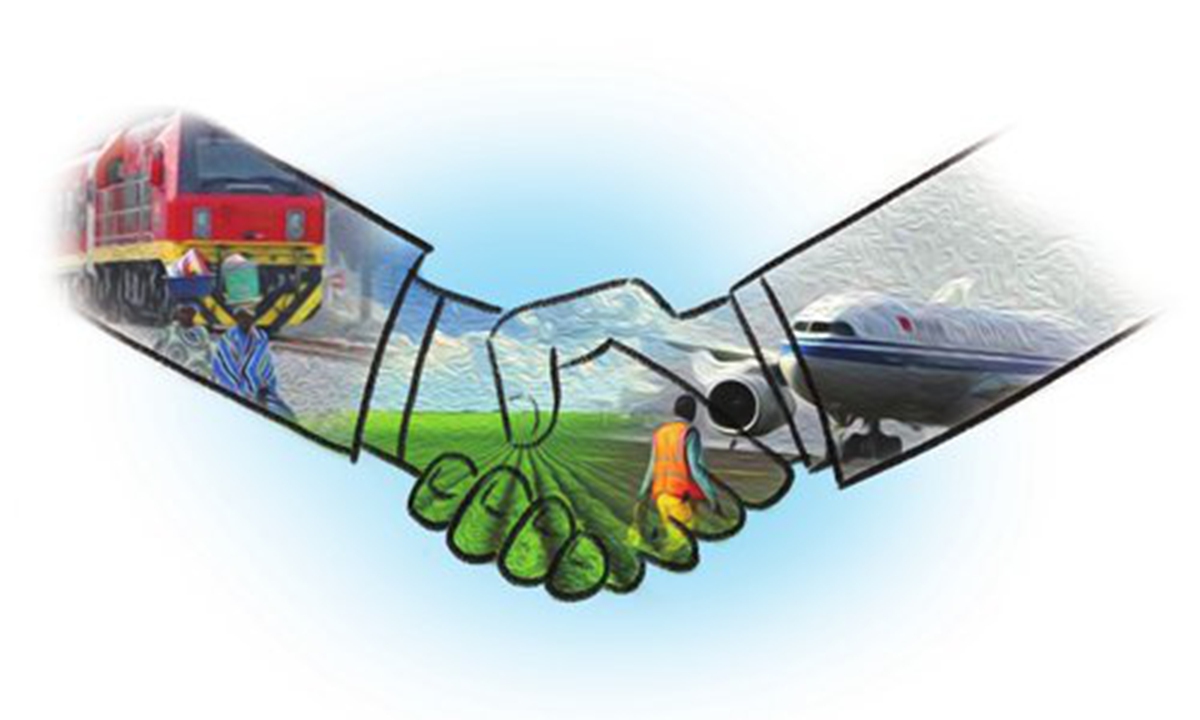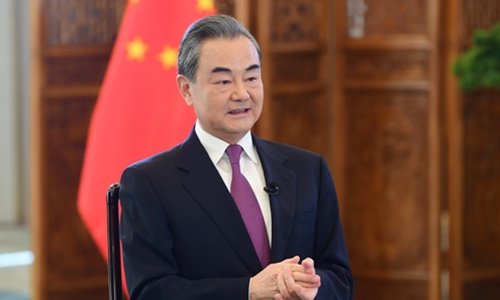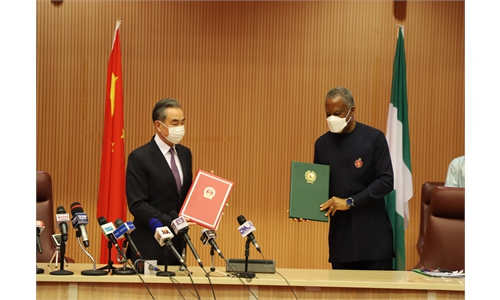COMMENTS / EXPERT ASSESSMENT
China’s assistance in Africa not to be impacted by US unilateralism

Illustration: Liu Rui/GT
As the COVID-19 pandemic continues to rage into 2021, Chinese adheres to a 30-year diplomatic tradition - its foreign minister visiting Africa for the first overseas trip for the year.Chinese State Councilor and Foreign Minister Wang Yi this week kicked off his official visits to five African countries - Nigeria, the Democratic Republic of the Congo, Botswana, Tanzania, and Seychelles, providing materials and funds that is needed in the fight against the virus and economic recovery and promoting implementation of African Union's Agenda 2063.
For several decades, Chinese aid has been an important part of the China-Africa partnership. The assistance which is attached to no political conditions aims to promote mutual development and respects the recipients' own choice in setting independent development pathways. The partnership is free from the influence of the rising protectionism and unilateralism across the world, providing Africa with strong support.
Many in the Western academic community have established a consensus - foreign assistance should serve a political purpose. The utilitarianism ideas of some Western countries have naturally led to "failures" in providing genuine aid. Reflecting the failures of their assistance, these countries have attributed the responsibility on their recipients, and have imposed additional political conditions to recipients, push them to carry out reform as Western countries planned, or else call off the assistance.
Compared with the Western countries, China highly respects developing countries' sovereignty, which is the foundation and starting point of China's international diplomacy. In pursuing its relationship with partners, China stresses will never interfere other countries' internal affairs in any forms. In foreign assistance, Chinese government in particular respects recipients, and never imposes any prescribed ideology.
In the 21st century, China-Africa relations have entered a period of growth and stability. China has repeatedly announced aid packages at the Forum on China-Africa Cooperation and has always adhered to the basic principle of not attaching any political conditions. In 2011, the Chinese government published the white paper "China's Foreign Aid," reiterating that China's foreign aid does not come with political conditions, and that aid will never be used as a means to interfere in other countries' internal affairs or to seek special privileges.
Chinese leaders have framed the China-Africa partnership as "Building a Community with a Shared Future for Mankind," sharing governing experiences with leaders of African countries, and discussing or solving the common problem affecting global governance.
During the COVID-19 pandemic, China has taken the lead in launching assistance in African countries. Not only has China delivered medical aid materials and sent medical expert teams to more than 50 African countries and the African Union many times, but also actively participated in and implemented debt relief initiatives at the G20 Finance Ministers and Central Bank Governors meetings. China's actions have helped many African countries to effectively control the epidemic and improved their ability to fight the virus and resolve domestic crises.
With protectionism and unilateralism are sweeping the world, and aid given to Africa decreasing. China commits to not attaching political conditions and respects the recipient countries to independently choose their development path. This approach has changed the power structure of the traditional Western aiding system, which is of great significance to the economic recovery and reconstruction of Africa in the post-pandemic period.
This article is based on excerpts from the new book "Cooperation and Win-win: Research on Jointly Building a China-African Community with a Shared Future." bizopinion@globaltimes.com.cn



